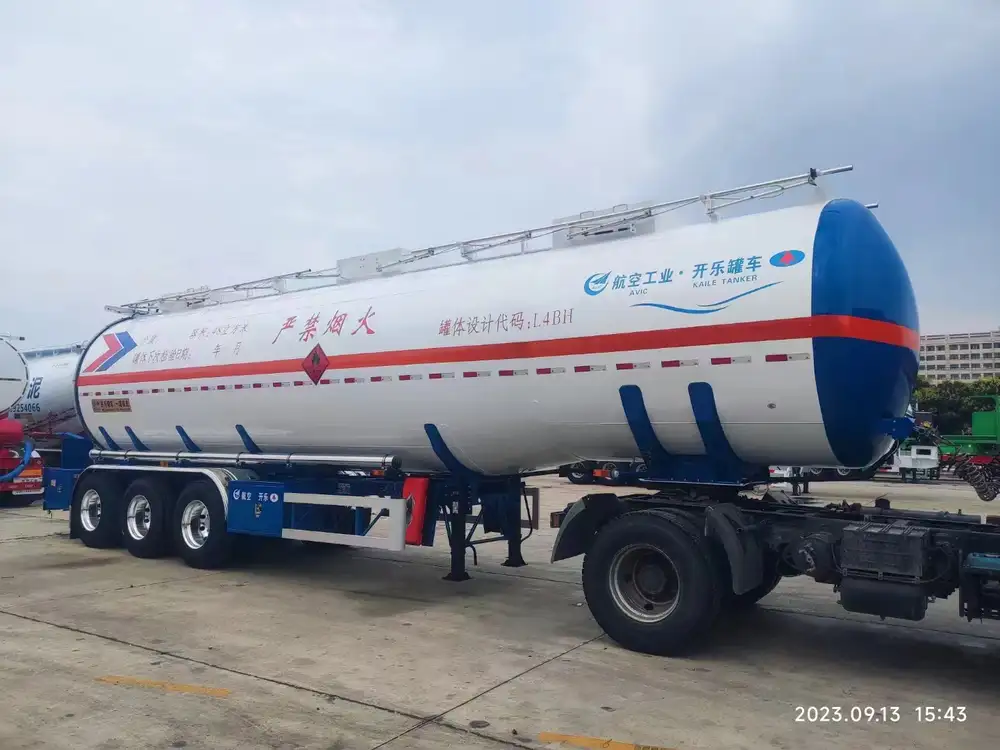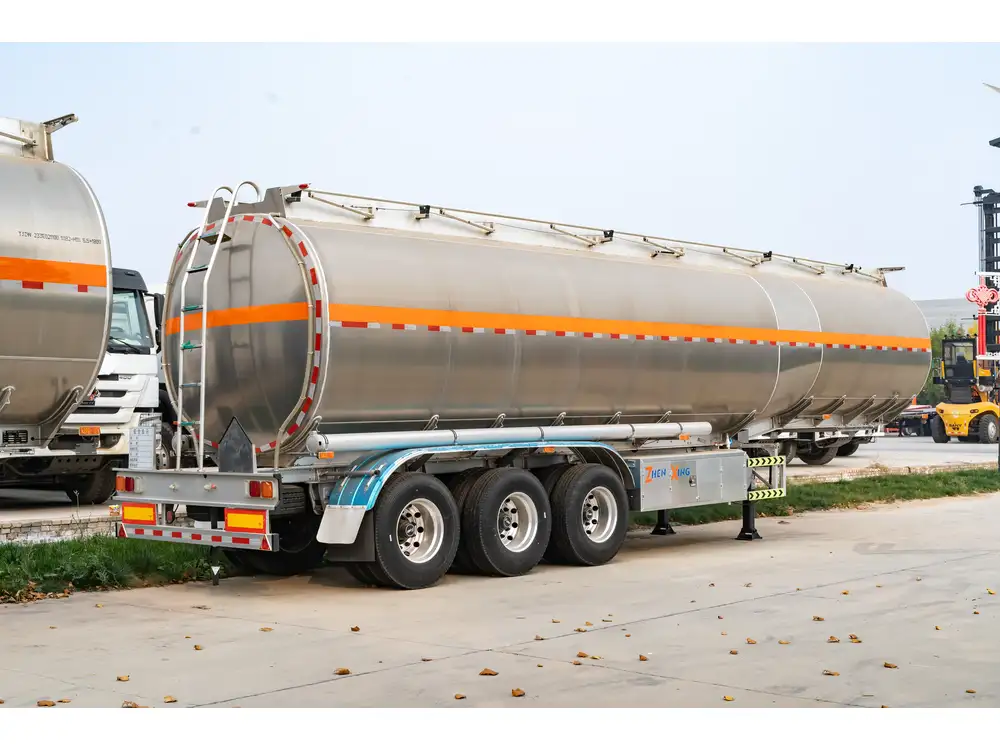When considering the world of transportation logistics, understanding the weight of a 40 ft flatbed trailer is essential. For those in the manufacturing and shipping sectors, knowledge about specifications such as weight, load capacity, and regulations is fundamental to ensuring compliance and maximizing operational efficiency. In this detailed exploration, we present accurate weight figures, delve into the implications of trailer weight for loads and transport, and discuss critical considerations for procurement.
Table of Contents
Understanding Flatbed Trailers
- Definition and Purpose
- Types of Flatbed Trailers
Weight Specifications of 40 Ft Flatbed Trailers
- Standard Weight Ranges
- Factors Influencing Weight
Importance of Knowing the Weight
- Load Capacity Considerations
- Regulatory Compliance and Safety
Comparing 40 Ft Flatbed Trailers to Other Trailer Types
- Weight Comparisons
- Practical Applications
Frequently Asked Questions
- FAQs about Flatbed Trailer Weight
Conclusion: Making Informed Choices in Trailer Selection
Understanding Flatbed Trailers

Definition and Purpose
Flatbed trailers are a type of trailer known for their open platforms without side walls or roofs, specifically designed to carry heavy loads that necessitate easy loading and unloading. Their versatility makes them ideal for various applications, including construction, shipping, and agriculture.
Types of Flatbed Trailers
Standard Flatbed Trailers: Generally offer a straightforward open design perfect for transporting pallets and large machinery.
Step Deck Trailers: Featuring a lower deck height, these trailers accommodate taller loads while remaining compliant with legal height requirements.
Drop Deck Trailers: These have a portion of the deck that sits lower, making it suitable for balanced loads above the legal height limit.
Weight Specifications of 40 Ft Flatbed Trailers

Standard Weight Ranges
The weight of a 40 ft flatbed trailer commonly ranges from 8,000 to 10,000 pounds (approximately 3,628 to 4,536 kg). This specification can fluctuate based on several design elements, materials used in manufacture, and configurations.
| Trailer Type | Typical Weight (lbs) | Typical Weight (kg) |
|---|---|---|
| 40 Ft Standard Flatbed | 8,000 – 10,000 | 3,628 – 4,536 |
| 40 Ft Step Deck | 9,000 – 11,000 | 4,082 – 4,990 |
| 40 Ft Drop Deck | 9,500 – 12,000 | 4,309 – 5,443 |
Factors Influencing Weight
Several variables come into play regarding weight, including:
- Material Composition: Steel vs. aluminum can create notable differences in weight.
- Design Features: Additional axles, decking materials, or built-in options such as toolboxes or fuel tanks impact overall mass.
- Weight Distribution: Varying loads and their arrangements can change the effective weight felt by both trailer and towing vehicle.
Importance of Knowing the Weight

Load Capacity Considerations
Understanding the weight of a 40 ft flatbed trailer is pivotal when calculating load capacity. Given the Federal Bridge Formula, which determines the maximum legal weight allowed on a vehicle/roadway to prevent structural damage, knowing the empty weight helps logistics managers ensure they do not exceed limits.
- Maximum Gross Vehicle Weight (GVW): The total weight allowed (trailer + load) typically remains capped at 80,000 lbs (approximately 36,287 kg) for commercial trucks in the U.S.
- Payload Calculation: If the empty weight of a 40 ft flatbed trailer is 10,000 lbs, the maximum payload capacity equals 70,000 lbs (80,000 lbs – 10,000 lbs).
Regulatory Compliance and Safety
Highway safety regulations impose strict guidelines about vehicle weight. Exceeding assigned limits can result in:
- Fines and Penalties: Consequences for non-compliance can be monetary and operational.
- Increased Risk of Accidents: Overloaded trailers can lead to loss of control, increased stopping distance, and potential structural failures.
Contractors and operators must remain compliant with Department of Transportation (DOT) and Federal Motor Carrier Safety Administration (FMCSA) regulations to avoid potential legal issues.
Comparing 40 Ft Flatbed Trailers to Other Trailer Types

Weight Comparisons
Comparisons of a 40 ft flatbed trailer’s weight with other trailer types highlight their position in the market. Below is a table reflecting typical weights for common trailer types:
| Trailer Type | Typical Weight (lbs) | Typical Payload Capacity (lbs) |
|---|---|---|
| 40 Ft Flatbed | 8,000 – 10,000 | 70,000 |
| 48 Ft Flatbed | 9,500 – 12,500 | 70,500 – 75,000 |
| 40 Ft Reefer | 13,000 – 15,000 | 65,000 – 67,000 |
| 20 Ft Container | 4,500 – 5,500 | 27,000 – 32,000 |
Practical Applications
Flatbed trailers, due to their design, are utilized in various sectors:
- Construction: Transporting heavy machinery and bulk materials.
- Agriculture: Moving large equipment or crops.
- Manufacturing and Distribution: Facilitating shipments of oversized products to retailers.
Frequently Asked Questions

1. How much weight can a 40 ft flatbed trailer legally carry?
The legal weight limit when considering the trailer’s weight is typically around 70,000 lbs, making them suitable for substantial loads across various industries.
2. What is the impact of trailer weight on fuel efficiency?
Heavier trailers can negatively affect fuel efficiency, as they require more power to tow. Therefore, knowing the trailer weight is crucial for calculating total operating costs.
3. Are there lighter options available?
Yes, manufacturers also provide lightweight options featuring aluminum construction, often resulting in a reduced weight of around 6,500 to 8,500 lbs.

4. What maintenance practices influence a trailer’s lifespan and performance?
Regular inspections, tire maintenance, brake checks, and ensuring proper load distribution can significantly extend the functional lifespan of a trailer.
5. Can I modify a 40 ft flatbed trailer to carry extra weight?
Modifications can be undertaken; however, it’s essential to consult industry regulations and a qualified professional to ensure compliance with weight laws and safety standards.
Conclusion: Making Informed Choices in Trailer Selection
Understanding the weight implications of a 40 ft flatbed trailer offers logistical advantages and operational efficiency. We recognize that choosing the right trailer not only impacts a company’s bottom line but also contributes significantly to safety on roads and highways. Prior to procurement, meticulous attention to weight specifications, load capacities, and industry regulations must be adhered to, ensuring your business is poised for success in an ever-evolving transportation sector.
The knowledge shared here aids in navigating the complexities of flatbed trailer choices and provides the foundation for making informed, strategic decisions that enhance efficiency and safety across operations. Remain vigilant and updated on industry standards as they continuously evolve, maximizing your investment potential in the transport logistics marketplace.



